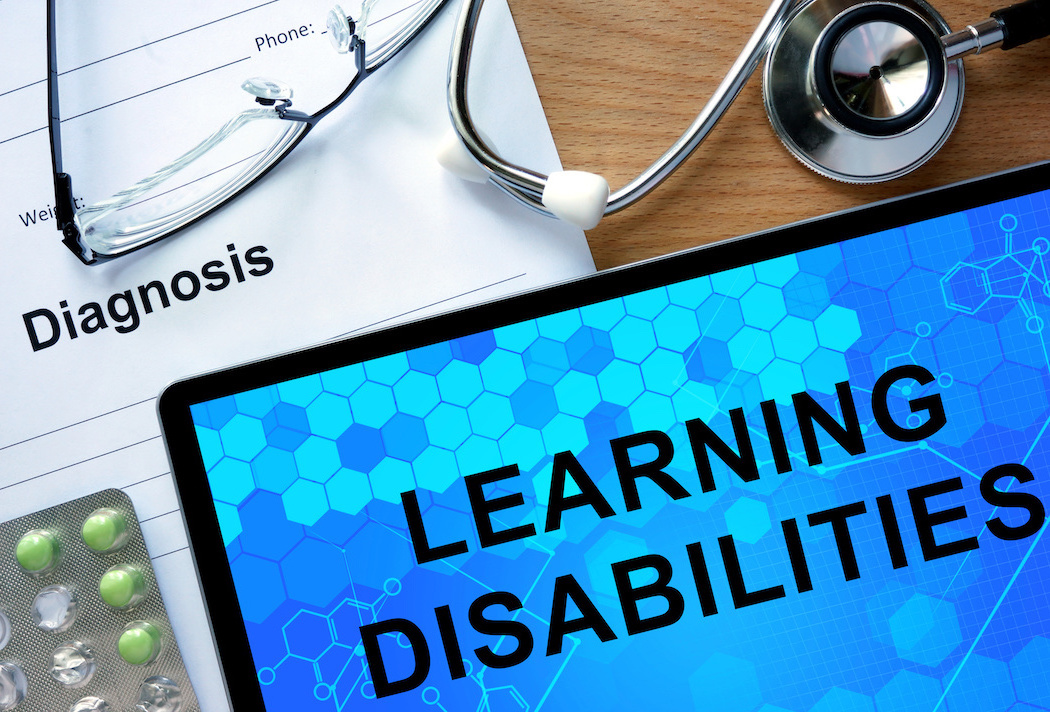Learning Disability Assessment Toronto
Do you wonder if a young person who is struggling to learn at school and to succeed academically is suffering from a learning disability? Perhaps the young person shows difficulty learning and developing basic academic skills in reading, writing, spelling and math compared to same age peers. A learning disability assessment helps determine whether the young person meets the criteria for a Specific Learning Disability and if so, what evidence based accommodations and interventions are required to assist them with their academic and learning needs.

What Is a Learning Disability?
Learning Disabilities are neurological disorders that involve how a person's brain stores, processes, retrieves and communicates information.
To meet the diagnosis for a Specific Learning Disability the young person must show indication of average intellectual functioning on a psycho-educational or psychological assessment. However, some have argued that this isn't necessary, it is the significance of the discrepancies between high and low scores that are of important. Nevertheless, a specific learning disability is not the same as an Intellectual Disability. In the case of a Learning Disability, a statistical formulae determines the significance of the young persons pattern of assessment strengths and weaknesses across neuropsychological and academic measures to determine whether a diagnosis of a learning disability applies.
Learning Disability Types
Learning Disabilities are associated with genetic and/or neurological factors that affect brain functioning. These can result in various weaknesses involving one or more of the neurocognitive processes associated with learning. These may include language difficulties, such as problems processing and comprehending language, or with verbal expression, as well as difficulty acquiring basic language skills.
Other learning disabled children may show nonverbal learning difficulties on the learning disability assessment, such as visual processing or discrimination weaknesses, problems with visual spatial organization, and with visual-motor tasks. They may have difficulty processing information in a timely and efficient manner. Executive function weaknesses, problems with memory, attention and auditory processes may also be at issue. These neuropsychological processing concerns interfere with the successful acquisition of basic academic skills in reading, writing and/or math, and can contribute to difficulties across all subject areas and knowledge domains.
Specific learning disorders also include dyslexia (a reading disability), dysgraphia, a disorder affecting the ability to turn thoughts into written words, and dyscalculia, a disorder which affects the ability to understand number based information and math.
Learning disabled children will also show academic skill levels significantly below expected levels.
A Learning Disability Assessment Can Help

Dr. O'Connor's comprehensive, in depth school neuropsychological assessments integrate a brain behaviour perspective. They help get to "the root" of the learning and/or academic problems that present in a young person. In the case of a learning disability assessment, the school neuropsychological assessment determines whether the young person meets the criteria for a specific learning disability.
Dr. O’Connor's school neuropsychological assessments increase understanding of the psychological concerns that surface in young people. The assessment reveals what is contributing to and maintaining these concerns, and leads to evidence based interventions to help.
Dr. O'Connor offers School Neuropsychological Evaluations to help explore the young person's learning problems and to determine whether he or she meets the criteria for a Specific Learning Disability. Young people who have been diagnosed with a Specific Learning Disability by a registered psychologist, or other qualified psychological professional, and who are identified as an Exceptional Student are entitled to an Individual Educational Plan (IEP). This plan provides the young person with appropriate supports and accommodations to assist him with the school program, and interventions to teach specific skills.
Accommodations might include: more time to complete academic work, tests and exams, preferential seating and assistive technology (e.g., text to speech software and/or speech to text soft ware).
Dr. O'Connor's comprehensive, in depth Psychological and School Neuropsychological Assessments explore a range of neuropsychological domains to determine whether the young person meets the diagnosis for a Specific Learning Disability. These domains include:
- Sensorimotor Functions
- Auditory/phonological processing skills
- Visual processing/spatial skills
- Memory & Learning skills
- Executive Functions
- Attention Skills
- Processing & Fluency Issues
The School Neuropychological Assessments also explore the young person's intellectual functioning levels, his or her language skills and academic functioning levels. Social, emotional and behavioral concerns are also addressed. Dr. O'Connor gathers and analyzes information from these various domains and areas of functioning to determine the young person's needs, his or her strengths and weaknesses and whether he or she meets the diagnosis for a learning disability.
Dr. O'Connor integrates the information gleaned through the assessment into a detailed, comprehensive psychological report. This report includes summaries of all test findings, including the young persons strengths and weaknesses, a diagnosis or diagnoses when appropriate, and evidence based interventions to address the learning/neuropsychological processing concerns that surfaced or were confirmed during the assessment.
If the assessment findings confirm that the young person meets the criteria for a learning disability, and the school supports this designation, the child is deemed an exceptional student. He or she is then entitled to receive academic accommodations and/or evidence based interventions to address his or her specific needs.